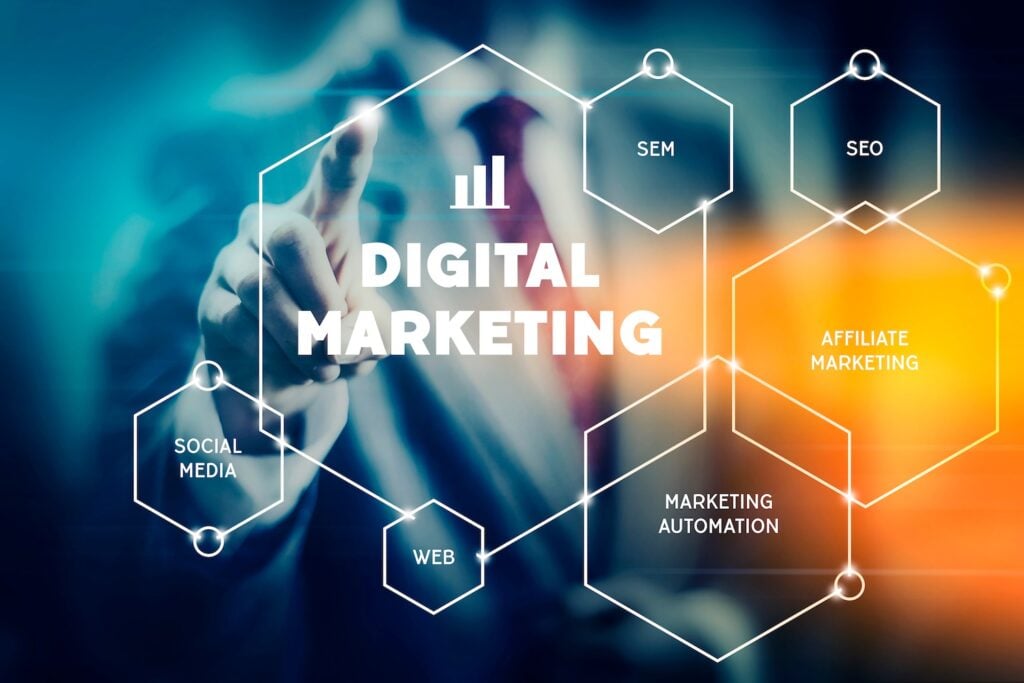Survey Data: 15 Skills Employers Look For in Today’s Workplace

- The Top Skills in Demand Today
The skills employers look for are always changing as technology advances. As a result, staffing needs and company goals evolve, and addressing skills gaps becomes more critical.
Generally speaking, employers often seek a combination of hard skills—or technical knowledge or training—and soft skills that focus more on how you work and interact with others.
The Top Skills in Demand Today
In the Emeritus 2021 Global Career Impact Survey, we polled 2,200 professionals worldwide in a variety of industries on the impact of online coursework on their professional development. In their responses, they also identified their upskilling needs for their teams and organizations.
So, what are skills employers look for in today’s workforce? Below are the top 15 based on our survey results, showcasing both hard and soft skills in the workplace. You can use this list to better understand today’s work landscape as you assess your own company’s needs and plan to upskill within your organization.
1. Artificial Intelligence (39%)
As we noted in a recent post with examples of technology skills in demand, AI refers to the creation of computer systems that can complete tasks and processes that historically were done by humans. This can improve outcomes and productivity. In the future, AI will continuously impact more aspects of the workplace.
According to Grand View Research, the global AI market size was valued at $62.35 billion in 2020. Between 2021 and 2028, it’s forecasted to expand at a compound annual growth rate of roughly 40%.
2. Management and Leadership (34%)
According to a LinkedIn Learning report, 61% of employers offer no formal leadership training for their employees. Yet 34% of professionals polled in our Impact Survey identified leadership as an upskilling need for their teams or organizations. (Learn more about why it’s important to develop leadership skills in your employees.) You might consider creating a mentorship program, assigning stretch projects, establishing training programs like those offered by Emeritus, and other strategies.

3. Analytics
Every time we make a purchase online or search for a term on Google, we leave behind a trail of data. Companies then use this information to personalize their product or service and better meet consumer needs.
Analytics is the process of finding and interpreting data patterns. Extracting actionable insights from complex datasets can help you better make business decisions. Specifically, our survey revealed that business analytics (33%), data analytics (32%), and marketing analytics (27%) are skills in demand for teams and organizations.
4. Machine Learning (32%)
Machine learning is a branch of AI where data and algorithms are used by computers to mimic how humans learn. Over time, computer algorithms gradually improve in their accuracy. Machine learning may be an important upskilling need for engineers, data analytics professionals, and technical managers.
5. Business Strategy (31%)
How will your company reach its goals and compete in its market? At a high level, these are questions you might ask when developing a business strategy. This entails making and executing important decisions. Once you have a business strategy in place that’s aligned with your vision, you can use it to determine your hiring and organizational structure needs, build out your marketing plan and objectives, and so on.
6. Digital Transformation (28%)
Digital transformation refers to the adoption of new processes, services, and values as an organization embraces new digital technologies. According to Statista, digital transformation often means relying on new devices for communication and collaboration, the automation of various processes and workflows, and moving data to cloud. Digital transformation may also focus on creating new digital products, such as mobile apps and eCommerce platforms. It requires collaboration across departments and is usually led by senior leadership.
7. Automation (25%)
Automation refers to technology’s ability to minimize human intervention in certain tasks in the workplace. Many companies today are undergoing digital transformation (see No. 6) and relying more on AI (see No. 1). So, it’s no surprise that a quarter of survey respondents identified automation as an upskilling need for their team or organization.
By 2025, the amount of time human and machines spend on tasks in the workplace will be equal, according to the World Economic Forum’s 2020 Jobs Report. Though technology may ultimately replace people in certain job functions (as happened with the rise of the personal computer or the automobile), advances in technology have overall gone hand in hand with increasing employment.
8. Critical Thinking (24%)
Not only did nearly a quarter of survey respondents identify critical thinking as an upskilling need for their team or company; the WEF Jobs Report also identified it as among the top skills needed for the workforce in the lead-up to 2025. Critical thinking involves going beyond simply recalling information. It involves questioning, analyzing, reasoning, and reflecting to make informed decisions. With critical thinking, you should be able to defend and articulate your thoughts or positions, according to the University of Louisville.
9. Design Thinking and Creativity (24%)
Some of the world’s largest and well-known companies have adopted a design thinking approach in recent years, the Interaction Design Foundation says on its website. Design thinking is a “solution-based approach to solving problems,” the foundation says. It means developing a better understanding of a product’s user and coming up with solutions that might not be immediately apparent. It also requires businesses to think outside the box and leverage their creativity. These two in-demand skills go hand in hand.
10. Problem-Solving (20%)
In addition to our survey finding, WEF identified complex problem-solving as a key emerging skill by 2025. To put it simply, problem-solving is the process by which you identify a problem, come up with possible solutions, and then take action. In the professional world, you’ll likely face both simple and complex challenges every day, regardless of your title or industry. That’s why it’s a soft skill in high demand. In a tech-driven world that’s constantly changing, employers need to be able to tackle new challenges and demonstrate persistence.
11. Innovation and Disruption (20%)
Put together, innovation and disruption entail introducing a product into an industry at a lower cost compared with existing offerings, which are typically more complex and expensive. Accessibility to a broader market is at the core of innovation and disruption. It makes sense that this skill is among the top skills that employers want today given how quickly technology advances and, consequently, how rapidly new products and services surface.
12. Data Science (20%)
While data science often complements the field of analytics, there are clear differences between the two disciplines. Analytics focuses more on leveraging data to make business decisions, whereas data science centers more on the creation and organization of complex datasets. Data scientists clean data for use by their colleagues, create statistical models, and write computer programs and algorithms, according to the Harvard Business School Online blog.
13. Digital Marketing (20%)
Also among the skills that employers are looking for is digital marketing. This encompasses the digital technologies you might use to promote a company’s products or services and build your brand. There are many channels where this can happen, including websites, search engines, social media, emails, and blogs.

14. Market Research and Consumer Insights (19%)
Before you start marketing your product or service to a specific audience, you need to learn more about your target market (i.e., your prospective buyers). Market research involves collecting quantitative and qualitative data through surveys, interviews, and focus groups, among other methods. You can learn the potential buyers and users of your product or service, the factors that influence their purchasing decisions, and your competition.
When you analyze this research, you can compile a list of consumer insights that reveal why your audience behaves in a certain way. Understanding how these behaviors might affect brand perception and can help you shape your strategy.
15. Product Management and Strategy (18%)
As noted on Indeed, product management is a good career for those who want to be involved in a company’s product development process. This skill focuses on a product’s lifecycle—everything from planning to production, pricing, marketing, and finally, official launch.
Product managers constantly aim to improve an organization’s existing offerings to better meet customers’ needs. The “strategy” part of product development entails developing a plan, grounded in research, based on your business goals and company vision.
***
Looking to upskill or reskill your staff and close skills gaps among employees? Learn more about developing online employee training programs with top universities tailored for your industry, company, and team.




